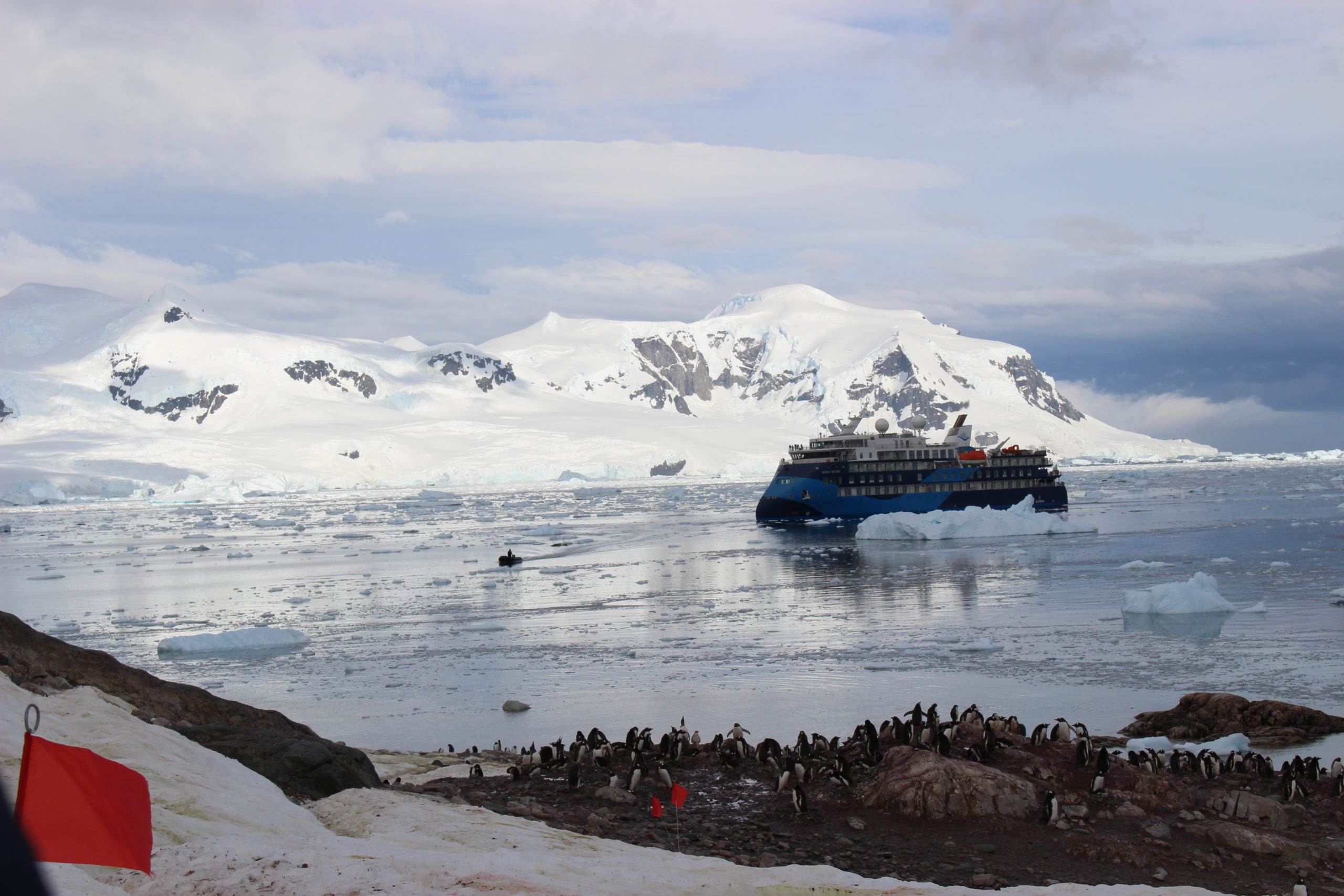
World travel can be life-changing. I’ve visited Hiroshima, Japan; China’s Great Wall; and Kenya’s savanna with its abundant wildlife. All have made a huge impression om me in their own special way.
Now I’ve seen Antarctica and its unique and fragile ecosystem, and again, I’ve come away impressed.
To a one-time tourist like me, all seems well. We saw some spectacular vistas and met some of the local inhabitants: two penguin colonies, the occasional seal, and a humpback whale. But the veterans know better. Through years of observation, they can see the stress in the wildlife populations, the impact of a changing climate, and the pollution. (Remember, plastic never breaks down, it just breaks up.)
Not that the changing conditions are a big secret. There are research stations from a multiplicity of nations stretching all the way to the South Pole, and a lot of money is being spent to keep them productive. And yet, if we are to keep this part of the world relatively unspoiled, who are the people who can have the most impact?
It could be us. The average citizen, the tourist, can accomplish wonders if we only realize what we can do. Here are some examples.
There is a non-government organization called Oceanites (https://oceanites.org/). Their mission is to conduct and evaluate vital research on Antarctic penguin populations in support of climate science.
If you spend a lot of time sailing in the sea or live near the coast and are fortunate enough to see a whale, take its picture, then submit it to Happy Whale (https://happywhale.com/home). This organization identifies whales by their unique markings, then tracks them around the world for science.
Then there is Penguin Watch (https://www.zooniverse.org/projects/penguintom79/penguin-watch), that at the time of this writing has 50,368 volunteers helping to count penguin chicks and eggs.
Further afield, there is eBird (https://ebird.org/home) for birding around the world.
So there is a lot we can do as private citizens to help out.
Over the centuries, some have exploited this region, historically for fur seals and whales, today for fish and krill. But perhaps there is a human spiritual need for wilderness, and the real Antarctic treasure is the unspoiled beauty that nourishes the soul.
As Jeff Adams, president of Marathon Tours and Travel, said during our cruise, “We travel as visitors, but come back as citizens of the world.”
And that includes all of us.
